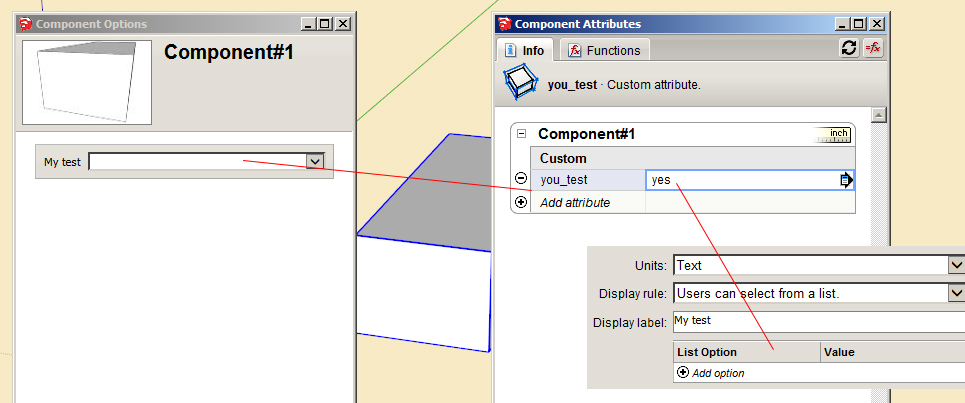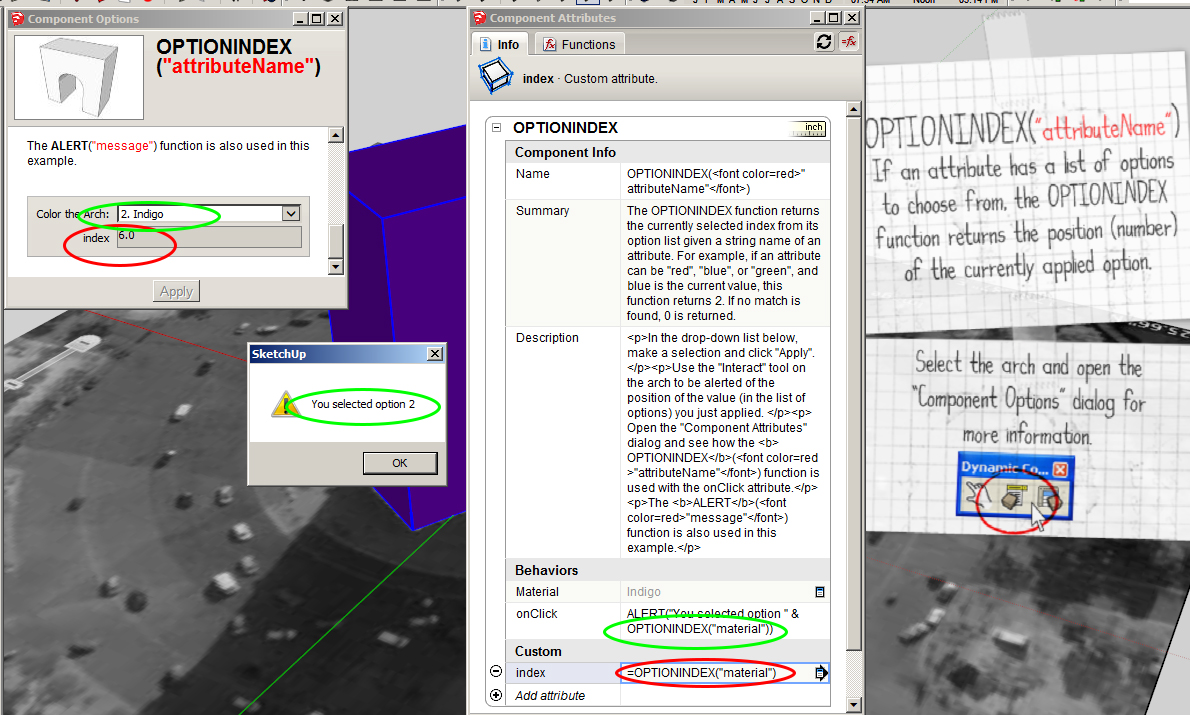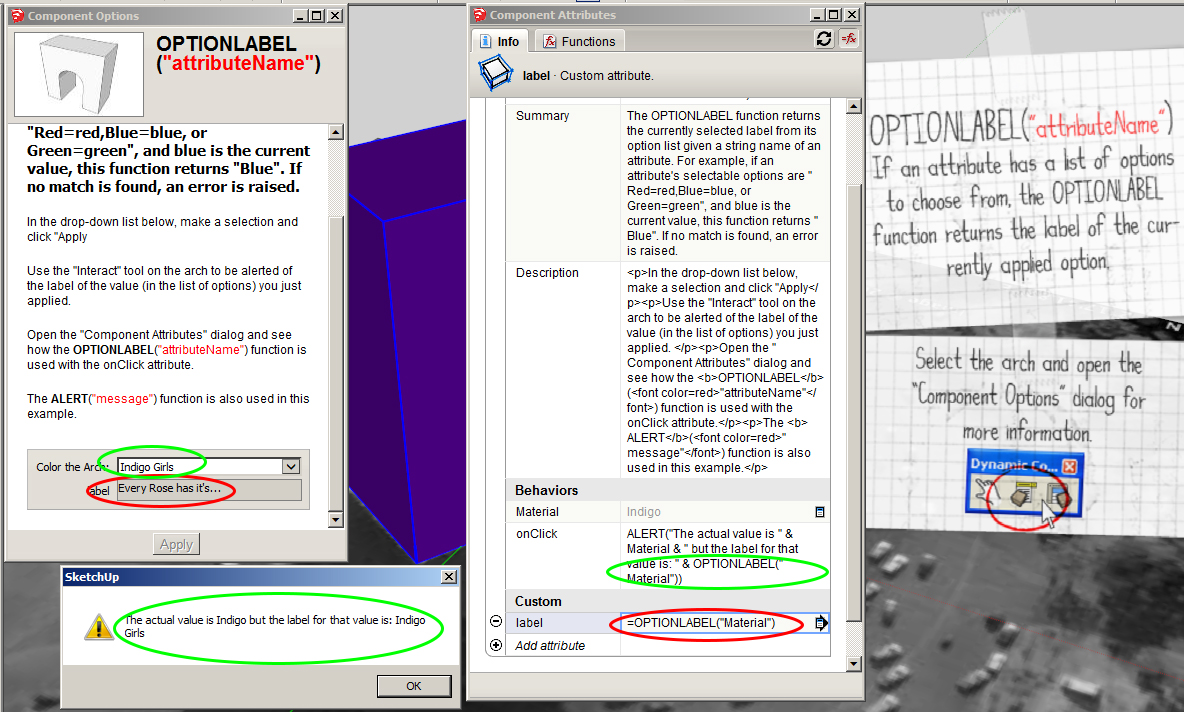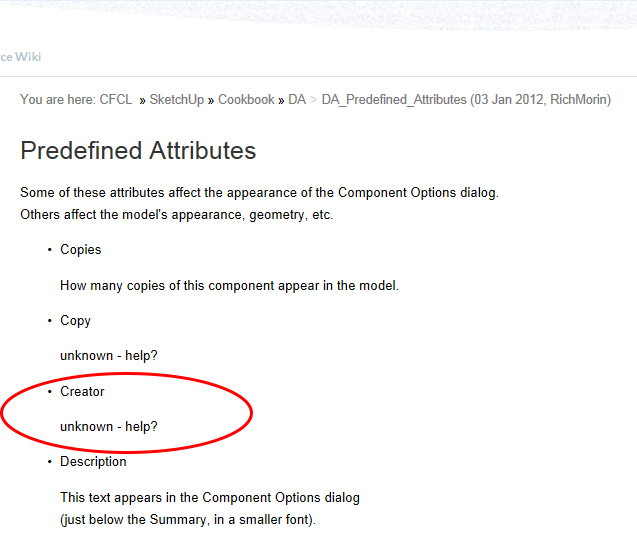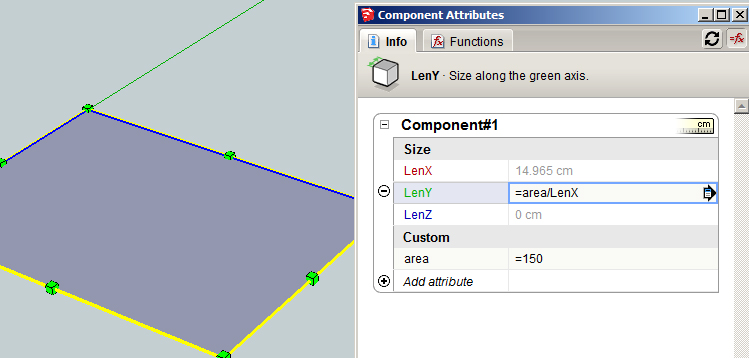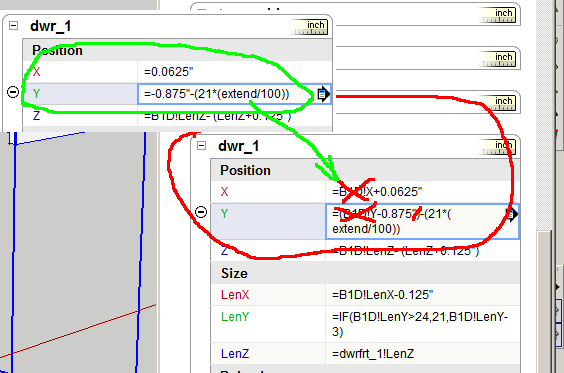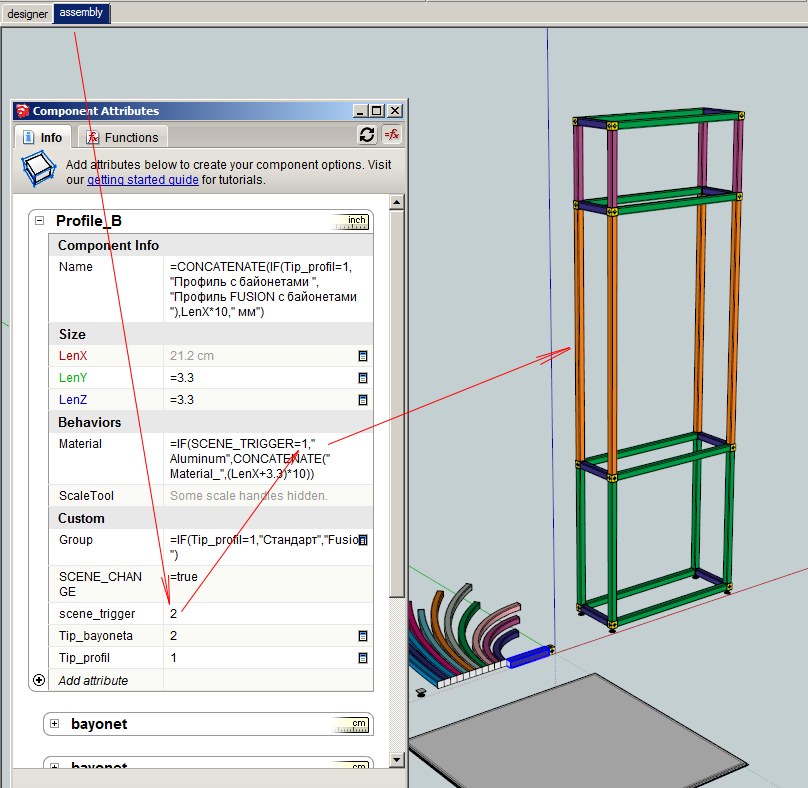the plugin works perfectly. But I would like to add the ability to input values for scene changes.
I added code first :
menu = UI.menu("PlugIns").add_item("Scenes") {
prompts = ["looping scene ? "]
input = UI.inputbox prompts
$sOptions_scenes=input
}
you can now set the number of scenes in the cycle
and changed the code:
attributes[SCENE_TRIGGER] = (((attributes[SCENE_TRIGGER].to_i+1)%5)).to_s
...to this:
scene_loop = [$sOptions_scenes].to_i
attributes[SCENE_TRIGGER] = (((attributes[SCENE_TRIGGER].to_i+1)%scene_loop)).to_s
unfortunately the last piece of code does not work
Can someone suggest a solution ?
Here's the entire code of the modified plugin:
#useful constants
# Copyright 2005-2008, Google, Inc.
# Permission to use, copy, modify, and distribute this software for
# any purpose and without fee is hereby granted, provided that the above
# copyright notice appear in all copies.
# THIS SOFTWARE IS PROVIDED "AS IS" AND WITHOUT ANY EXPRESS OR
# IMPLIED WARRANTIES, INCLUDING, WITHOUT LIMITATION, THE IMPLIED
# WARRANTIES OF MERCHANTABILITY AND FITNESS FOR A PARTICULAR PURPOSE.
#
# This code snippets allows you to have Dynamic Components
# that modify themselves based on a Scene Change
#
# They need to have at the top level the following attributes
# "scene_change" a boolean value that if true force the DC to react to scene changes
# and if false has the DC ignore the scene change
# and
# "scene_trigger" which is the index that is incremented every time there is a scene change and
# it is used to change attributes for the DC.
# Attach our observer.
menu = UI.menu("PlugIns").add_item("Scenes") {
prompts = ["looping scene ? "]
input = UI.inputbox prompts
$sOptions_scenes=input
}
# Copyright 2005-2008, Google, Inc.
# Permission to use, copy, modify, and distribute this software for
# any purpose and without fee is hereby granted, provided that the above
# copyright notice appear in all copies.
# THIS SOFTWARE IS PROVIDED "AS IS" AND WITHOUT ANY EXPRESS OR
# IMPLIED WARRANTIES, INCLUDING, WITHOUT LIMITATION, THE IMPLIED
# WARRANTIES OF MERCHANTABILITY AND FITNESS FOR A PARTICULAR PURPOSE.
#
# This code snippets allows you to have Dynamic Components
# that modify themselves based on a Scene Change
#
# They need to have at the top level the following attributes
# "scene_change" a boolean value that if true force the DC to react to scene changes
# and if false has the DC ignore the scene change
# and
# "scene_trigger" which is the index that is incremented every time there is a scene change and
# it is used to change attributes for the DC.
#
#
# Author; Simone Nicolo
require 'sketchup.rb'
# Define the Frame Change Observer which is documented in the Pages class.
class FrameChangeObserver
def initialize
# @current page is used to make sure that the observer is only triggered by page changes
# This is to workaround the PC bug that does not correctly populate the fromPage variable in the
# callback to frameChange.
@current_page = Sketchup.active_model.pages.selected_page
end
# Callback triggered by the Frame change observer.
# fromPage is populated with the page we were coming from, toPage is
# populated with the page we were transitioning to
# and percent done contains the percentage of the transition that
# has completed.
def frameChange(fromPage, toPage, percent_done)
# If there has been a page change and it has completed
if (not toPage.nil? and percent_done == 1) then
if @current_page != toPage then
#update the current page
@current_page = toPage
#find the DCs that need redrawing, and redraw them.
find_dc_for_redraw
end
end
end
# This function finds all the DC's that need to be redrawn based on a scene transition and
# on the boolean scene_change attribute if scene_change is true, change and redraw
# the DC on a scene transition, if it is false do not change or redraw the DC.
def find_dc_for_redraw
entities_list = Sketchup.active_model.entities
if entities_list != []
# For all the entities in the model
entities_list.each do |item|
type = item.typename
case type
# Find the Dynamic Component instances
when "ComponentInstance"
if not item.attribute_dictionaries.nil?
attributes = item.attribute_dictionaries[DICTIONARY_NAME]
# If they have a scene_change attribute that contains true
if (not attributes.nil? and attributes[SCENE_CHANGE] == 1.to_s)
# Increment the scene_trigger attribute.
# Here we are allowing the scene trigger attributes to only have the values
# 1, 2, 3, and 4.
scene_loop = [$sOptions_scenes].to_i
attributes[SCENE_TRIGGER] = (((attributes[SCENE_TRIGGER].to_i+1)%scene_loop)).to_s
if attributes[SCENE_TRIGGER] == "0" then
attributes[SCENE_TRIGGER] = 1.to_s
end
# Redraw the DC using the $dc_observers global variable.
$dc_observers.get_latest_class.redraw_with_undo(item)
end
end
end
end
else
UI.messagebox("There are no entities in this model!")
end
end
end
if not file_loaded? 'scenes.rb'
# Useful constants
# Dynamic Components dictionary name
DICTIONARY_NAME = "dynamic_attributes"
# Boolean attribute that turns on and off the reaction to a scene change for the DC
SCENE_CHANGE = "scene_change"
# Index attribute for the DC that is used to drive changes in the DC.
SCENE_TRIGGER = "scene_trigger"
# Attach the frame chage observer to the global Pages object.
id = Sketchup;;Pages.add_frame_change_observer(FrameChangeObserver.new)
file_loaded 'scenes.rb'
end
